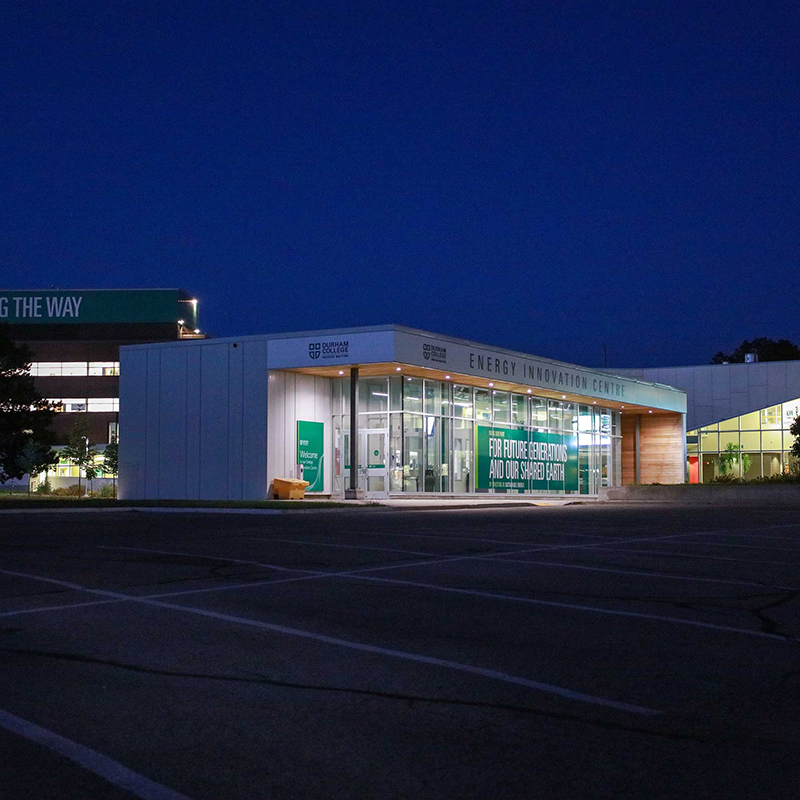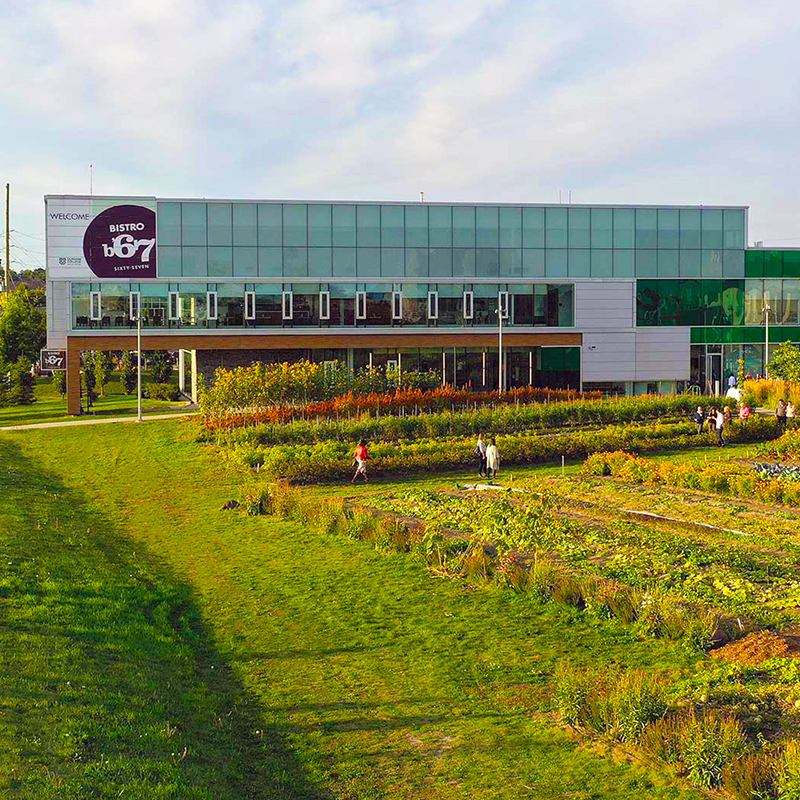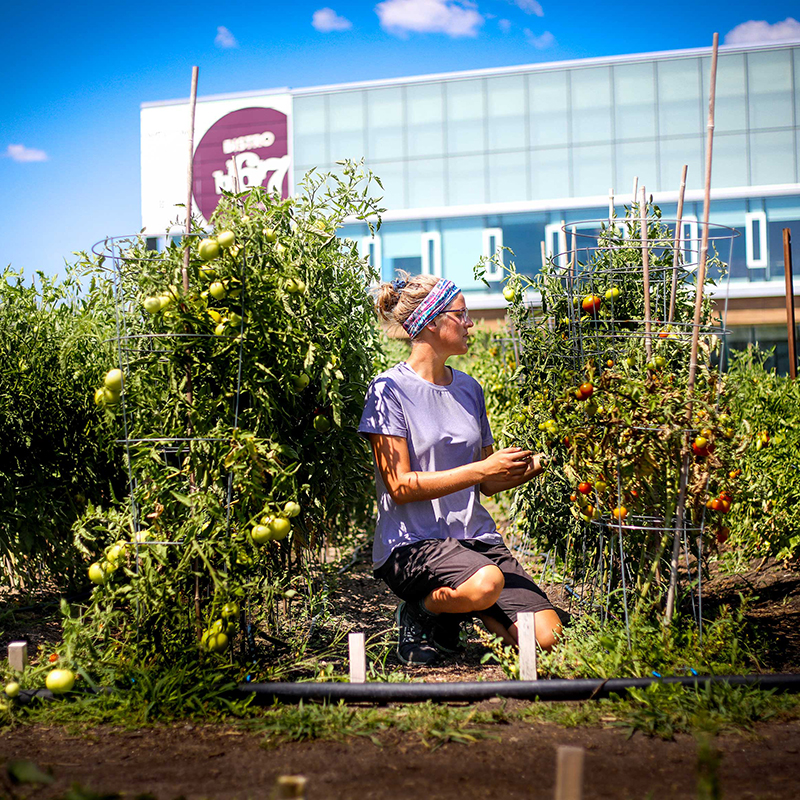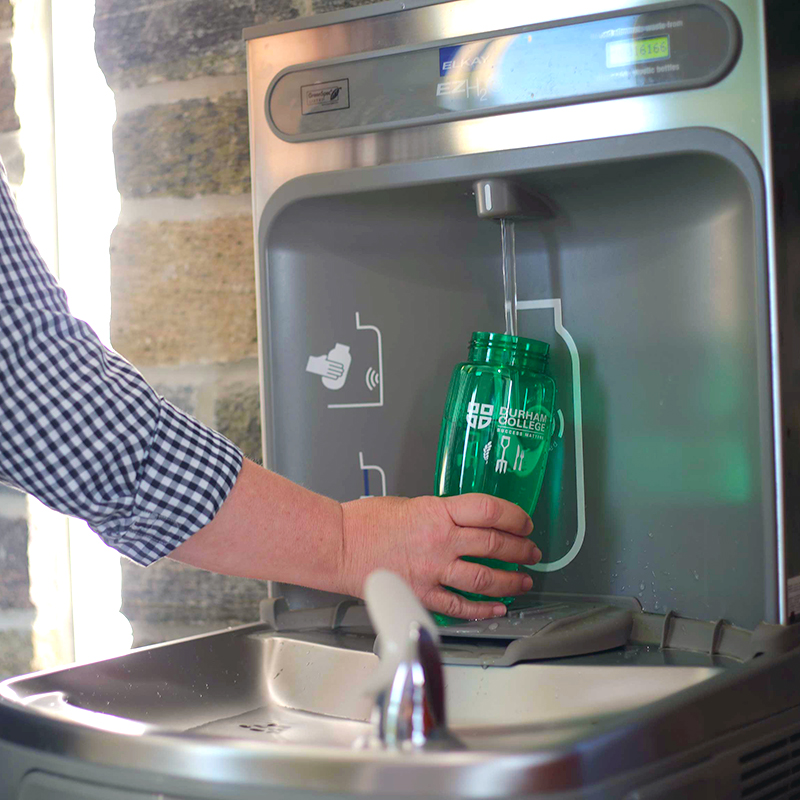Three ways Durham College’s Barrett Centre can help Durham veggie gardeners get growing
As local gardeners start planting, Durham College’s Barrett Centre of Innovation in Sustainable Urban Agriculture is here to help you succeed in growing nutritious and delicious food at home.
Community members can connect with The Barrett Centre both online and in-person by visiting our Ajax Urban Farm.
Here are three ways we’re helping you get growing this summer:
Visit our Community Portal
The Barrett Centre’s Community Portal is a one-stop-shop resource for growing fresh food at home. Whether you have a large backyard, a planter on your balcony or you’re planting a garden with a class or community group, our portal can help you succeed through our Knowledge Centre featuring how-to-guides and garden models.
Wondering if it’s warm enough to plant your peas? Visit our Community Forum and chat with other gardeners to find out what they’re planting and when. For more advanced questions, try our Ask an Expert feature where our experts can help you with topics like plant health, pest management, advise you on soil, watering and more! Frequently Asked Questions are also posted so you can browse answers from experts.
Join us at the Ajax Urban Farm’s Community Open Houses
Tour the farm and get to know us at our Spring and Summer Community Open Houses. Try our drop-in sessions and meet our team! The Spring Open House is on May 31 from 2 to 5:30 p.m. and the Summer Open House is on July 25 from 4 to 7:30 p.m. Find The Barrett Centre Ajax Urban Farm at 1355 Harwood Ave. N. in Ajax.
Summer drop-ins at the farm
Our library and garden drop-ins run on three Wednesdays per month in the summer from 3 to 5 p.m.: June 12, 19 and 26; July 10, 17 and 24; and August 7, 14 and 21.
The farm library has a range of books from storybooks perfect for reading on a blanket at our farm, to more specialized books on growing topics for both new and experienced gardeners.
On Thursdays, get in touch with your creative side and drop-in for an art activity! Art drop-ins run from 3 to 5 p.m. on June 13, 20, 27; July 11, 18 and 25; and August 8, 15 and 22.
Not a gardener but you love fresh fruit and veggies?
Check out our Mobile Food Market where local produce is sold at an affordable cost. This project is a collaboration between the Barrett Centre and Community Care Durham.
Starting on May 22, it will run every Wednesday at the Ajax Community Centre North Parking Lot, 75 Centennial Rd. in Ajax, from 11:30 a.m. to 2 p.m. and on Fridays at the Whitby 55+ Recreation Centre, 801 Brock St. S. in Whitby, from 1:30 to 3 p.m.
Learn more about The Barrett Centre online or contact us via e-mail to book a tour via Barrett.Centre@durhamcollege.ca.




